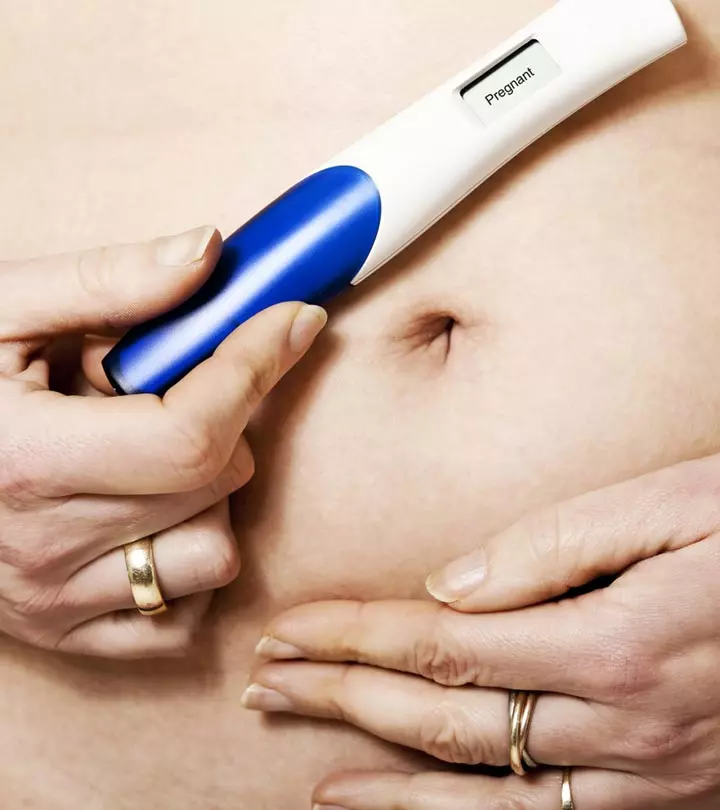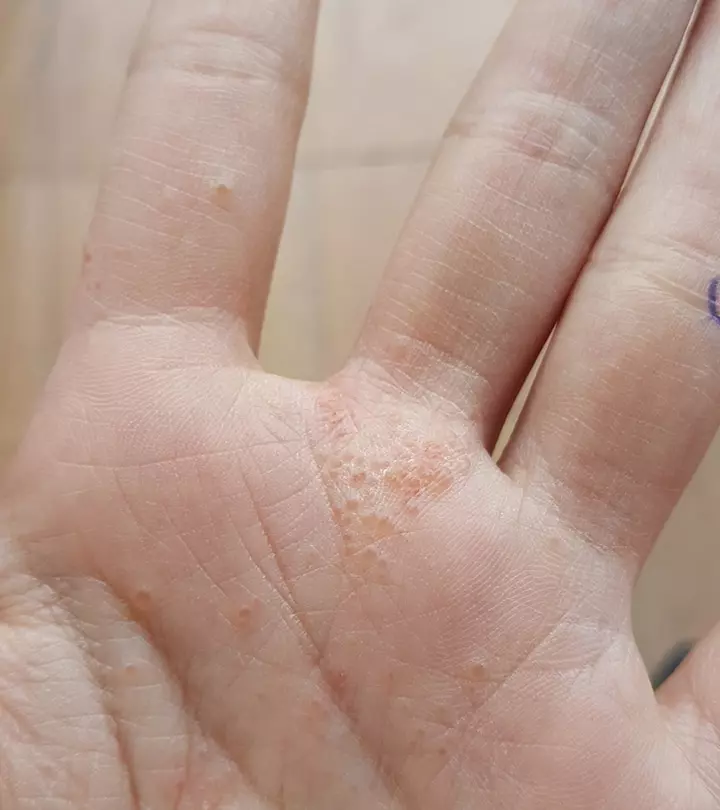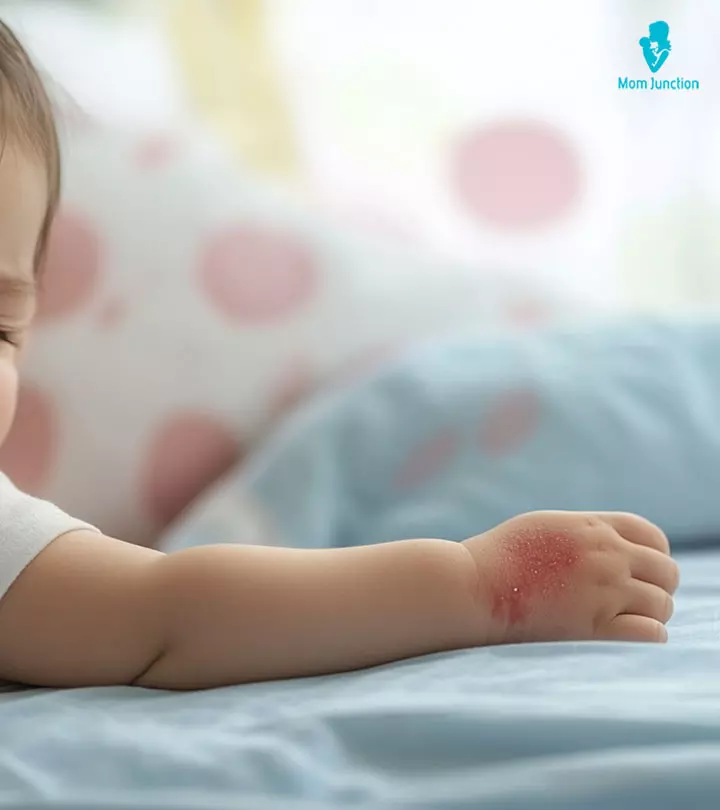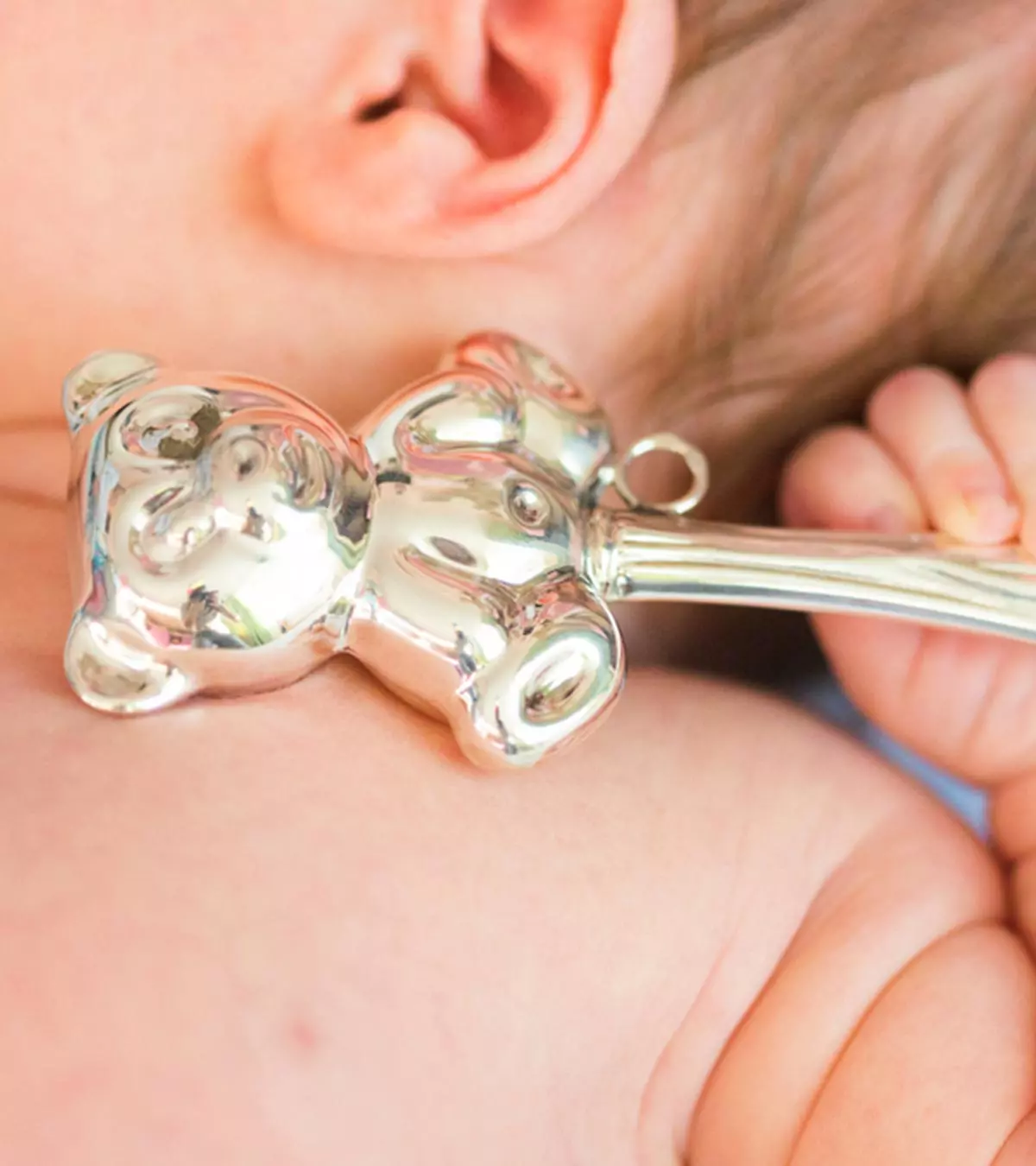
Image: Shutterstock
Pregnancy can bring out a range of emotions, and it is not unusual to experience several overwhelming thoughts when one is planning pregnancy after a miscarriage

. While some women want to embrace motherhood as soon as possible after a loss, others may take some time to recover from it.
Each pregnancy and body is different. How soon you can get pregnant after a miscarriage depends on several factors such as your overall health, how far along you were in the previous pregnancy, your and your partner’s emotional health, and the doctor’s consent. Read this post to learn about the prerequisites and precautions when getting pregnant after a miscarriage.
Key Pointers
- After a miscarriage, fertility typically returns immediately, but it is important to use contraception until the body has fully recovered to support another pregnancy.
- Timing for a subsequent pregnancy may be recommended by a doctor based on physical and emotional health factors.
- The World Health Organization (WHO) suggests waiting for six months before trying to conceive, while other medical professionals may advise waiting two to three months.
- Hormonal tests, chromosomal studies, blood tests, and uterine examinations may be recommended to determine the underlying cause of recurrent miscarriages.
- Taking prenatal vitamins, maintaining a healthy lifestyle, and timely vaccinations may increase the chances of a healthy pregnancy.
How Soon Can You Get Pregnant After Miscarriage?

Fertility may return immediately after miscarriage, and hence it is suggested to use contraception until you are ready or your doctor permits you to get pregnant again. While some doctors recommend having at least one period before trying to get pregnant, the others recommend a waiting period of two to three months before conceiving again (1) (2).
In a general manner,The World Health Organization (WHO) recommends a minimum interval of six months to the next pregnancy to reduce risks of adverse outcomes (3). and correct iron-deficiency anemia. Your doctor will evaluate all factors and recommend a suitable time duration for you to wait before getting pregnant again.
When Should You See A Doctor Before Attempting To Get Pregnant Again?

Your Ob/Gyn may refer you to a maternal-fetal specialist, reproductive endocrinologist, or genetics specialist to increase your chances of a healthy pregnancy if you (2):
- Have experienced two or more miscarriages
- Are aged about 35 years
- Have a condition (such as diabetes hypertension, anemia or thyroid disorders) that can affect your fertility or reproductive health
- Are experiencing issues with fertility
 Do remember
Do rememberWhich Tests Are Recommended Before Attempting Pregnancy After Miscarriage?

If one miscarries in the first trimester of the gestation period, the doctors usually do not recommend any tests as the tests may not find the cause of miscarriage in the first trimester. More than 70% of miscarriages are due to non recurrent genetic abnormalities. However, for women who experience repeated miscarriages in the first trimester or a miscarriage in the second trimester, the healthcare provider may recommend one of the following tests (4).
1. Chromosome studies
Chromosome studies such as karyotyping can help look for chromosomal problems in you and your partner. Karyotyping can count the number of chromosomes and see if there are any abnormal changes in the chromosomes. If the doctor can acquire the contents of conception, they may also test it for other chromosomal conditions.
2. Hormone tests
The doctor may run some blood tests to check for hormonal imbalance. They may also conduct an endometrial biopsy to check for hormonal imbalance by extracting a small piece of the uterine lining and examining it.
3. Blood tests
The doctor might ask you to get tested for autoimmune conditions, such as lupusiAn autoimmune condition that may cause fever, rashes, and organ damage and antiphospholipid syndromei An autoimmune condition in which the body may produce an unusual clot, blocking the blood vessels (APS), check for disorders, such as thyroid problems and blood-clotting disorders, or check for progesterone levels.
4. Examining the uterus
The doctor may perform an abdominal ultrasound to check the reproductive organs such as the uterus, ovaries, and fallopian tubesiTwo long tubes connecting the ovaries and the uterus, creating a passageway for sperms to fertilize the egg . Other tests include hysteroscopy (a special scope is inserted through the cervix to examine the uterus), hysterosalpingography (an X-ray of the uterus), or sonohysterogram (saline is sent into the uterus through the catheter, and high-frequency sound waves are used to create images of the insides of the uterus) (5)
The doctor will suggest an appropriate test depending on the overall health and other conditions.
What Is The Risk Of Having Another Miscarriage?
About one in five women experience early miscarriage (during the first three months of pregnancy). However, the good news is that most women go on to have successful pregnancies after a miscarriage (6). Women who have experienced one or two early miscarriages are not at a higher risk of recurrence (7).
About 15% of women experience sudden miscarriages, about 2% experience two miscarriages in a row, and only about 1% experience three losses in a row. These statistics explain the recurrent pregnancy losses.
- After one miscarriage, the chance of a second miscarriage is about 14-21%.
- After two or three miscarriages, the chance of a loss is 24-29% or 31-33%, respectively.
However, these statistics may differ based on the factors such as maternal age, cause of miscarriage, and previous history of live birth.
Can You Improve Your Chance Of A Healthy Pregnancy?

While the underlying cause of a miscarriage is not always known, taking these precautions after a miscarriage may help in having a healthy subsequent pregnancy (8) (9).
- Take your prenatal vitamins, including folic acidi Vitamin B complex nutrient that helps in cell growth and is found in foods such as spinach, beans, and nuts and iron
- Do not skip any antenatal appointments.
- Follow all of your doctors’ advice if they can identify and recommend any measures based on the cause of the previous miscarriage.
- Avoid smoking, drug abuse, or alcohol consumption.
- Reach a healthy BMI range if you are overweight or obese.
- Control your pregnancy weight gain if you are overweight or obese in pregnancy.
- Take all measures to prevent infections such as toxoplasmosisiAn infection caused by the Toxoplasma gondii parasite, typically found in undercooked meat, animal feces, and contaminated soil , have rubella vaccine before pregnancy if not immunized.
- Avoid certain foods such as raw or undercooked meat, unpasteurized dairy products, raw or undercooked eggs, and certain kinds of fish.
- Limit your caffeine intake.
- Stay active and do safe exercises during pregnancy.
How To Manage The Stress Of Trying To Get Pregnant Again?

It is normal to be surrounded by overwhelming emotions such as fear, anxiety, stress, guilt, sadness, worrying about losing one more baby, or forgetting the lost baby after having another baby. It is okay and only natural to feel all of these emotions. Share your feelings with your partner or your loved ones.
A strong support system can help you get the necessary support during pregnancy after a loss. Your support system may comprise (10):
- Family
- Friends
- Healthcare provider
- A counselor
- Local or online support groups of other parents who have experienced a loss in pregnancy
 Point to consider
Point to considerWhen Would Your Doctor Ask To Wait Before Getting Pregnant?
Your healthcare provider may ask you to wait for some time or until some investigations are done in the following circumstances (11).
- If you had a molar pregnancy
- If you had an ectopic pregnancyiA condition in which the fertilized egg gets implanted outside the uterus, usually in one of the fallopian tubes
- If you have an illness or infection or are using any medicines that are not recommended in pregnancy
- If you experienced a late miscarriage
- If you have had repeated losses in pregnancy
Frequently Asked Questions
1. Am I more fertile after a miscarriage?
In a randomized control study done on 1228 women between ages 18 and 40, it was found that about 69% of all women who attempted to conceive within three months of experiencing a miscarriage got pregnant sooner in the said time frame (12).
2. Does stress cause a miscarriage?
No, many studies prove that there is no direct link between recurrent miscarriages and stress levels (6).
3. What week is the highest risk of miscarriage?
Most miscarriages have been found to occur within the first 12 weeks of pregnancy (three months or first trimester). The rate of miscarriage usually declines after 12 weeks (14).
4. Does pregnancy after miscarriage feel different?
Pregnancy after a miscarriage may produce mixed emotions. You may be joyful about embracing parenthood again while feeling anxious due to the past mishap (15). These emotional turmoils are natural but do talk to a doctor if you find them overwhelming. Ensure you follow the healthcare provider’s instructions and take proper care of yourself to reduce the risk of pregnancy complications.
Each pregnancy and miscarriage is unique. If you have had three or more miscarriages, your doctor may recommend that you see a fertility specialist (1). A miscarriage can be emotionally taxing for women, and whatever emotions you feel after a miscarriage are valid. Consult your healthcare provider to get answers to your questions and apprehensions regarding your pregnancy after a miscarriage.
Infographic: Notable Points About Pregnancy After A Miscarriage
After having a miscarriage, the woman might want to get pregnant again as soon as possible. However, in some cases, the doctor may suggest delaying getting pregnant again for a while. The infographic below enlists some of these conditions, which may require waiting and some recommended tests to be done before attempting pregnancy.
Some thing wrong with infographic shortcode. please verify shortcode syntaxIllustration: How Soon Can You Get Pregnant After A Miscarriage?

Image: Stable Diffusion/MomJunction Design Team
Embarking on the path of conception after multiple miscarriages can be an arduous journey. Find solace and guidance through this video, offering insights and support during this challenging process.
References
- Your health after a miscarriage.
https://www.pregnancybirthbaby.org.au/what-happens-after-miscarriage - Pregnancy After Miscarriage.
https://americanpregnancy.org/getting-pregnant/pregnancy-loss/pregnancy-after-miscarriage/ - Birth spacing — report from a WHO technical consultation.
https://iris.who.int/bitstream/handle/10665/73710/RHR_policybrief_birthspacing_eng.pdf - Miscarriage.
https://www.marchofdimes.org/find-support/topics/miscarriage-loss-grief/miscarriage - Sonohysterography.
https://www.hopkinsmedicine.org/health/treatment-tests-and-therapies/sonohysterography - Recurrent Pregnancy Loss.
https://fertility.wustl.edu/learn/multiple-miscarriages/ - Will I miscarry again?
https://www.tommys.org/baby-loss-support/miscarriage-information-and-support/pregnancy-after-miscarriage/reducing-risk-miscarriage - Pregnancy after a miscarriage.
https://www.tommys.org/baby-loss-support/miscarriage-information-and-support/pregnancy-after-miscarriage - Foods to avoid in pregnancy.
https://www.tommys.org/pregnancy-information/im-pregnant/nutrition-in-pregnancy/foods-avoid-pregnancy - Thinking About Pregnancy After The Death Of Your Baby.
https://www.marchofdimes.org/find-support/topics/miscarriage-loss-and-grief - Trying again.
https://www.miscarriageassociation.org.uk/information/worried-about-pregnancy-loss/trying-again/ - Trying to conceive soon after a pregnancy loss may increase chances of live birth.
https://www.nih.gov/news-events/news-releases/trying-conceive-soon-after-pregnancy-loss-may-increase-chances-live-birth - How Long After A Miscarriage To Try Again?
https://healthcare.utah.edu/the-scope/shows.php?shows=0_iwnbqiad - Miscarriage: your questions answered.
https://www.nct.org.uk/pregnancy/miscarriage/miscarriage-your-questions-answered - Pregnancy after a miscarriage.
https://www.tommys.org/baby-loss-support/miscarriage-information-and-support/pregnancy-after-miscarriage
Community Experiences
Join the conversation and become a part of our nurturing community! Share your stories, experiences, and insights to connect with fellow parents.
Read full bio of Dr. Ben Abbes Taarji Hicham
Read full bio of Dr. Ritika Shah
Read full bio of Rebecca Malachi
Read full bio of Dr. Joyani Das


















